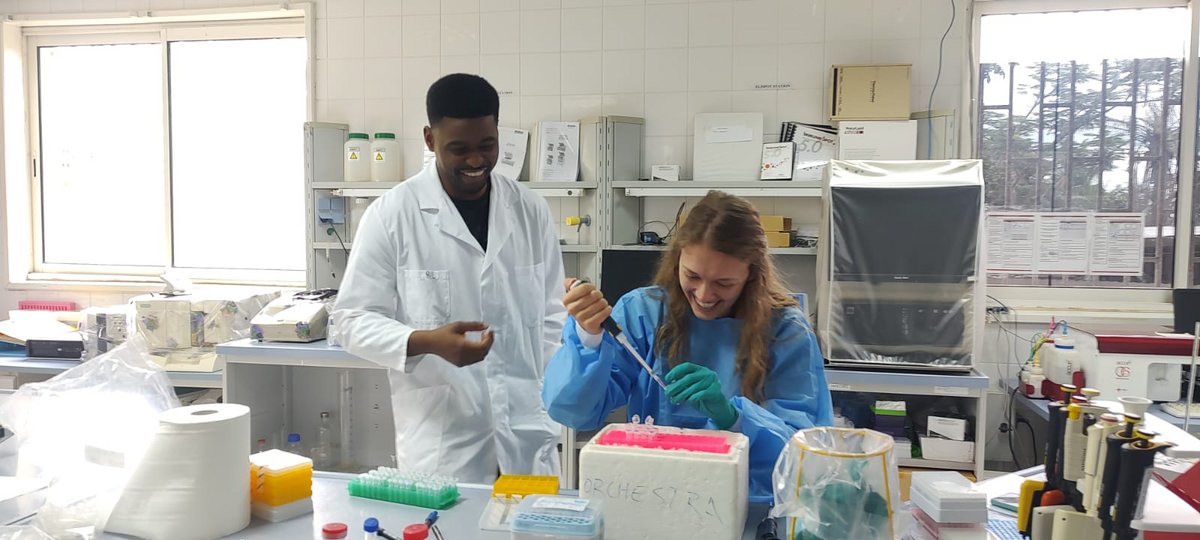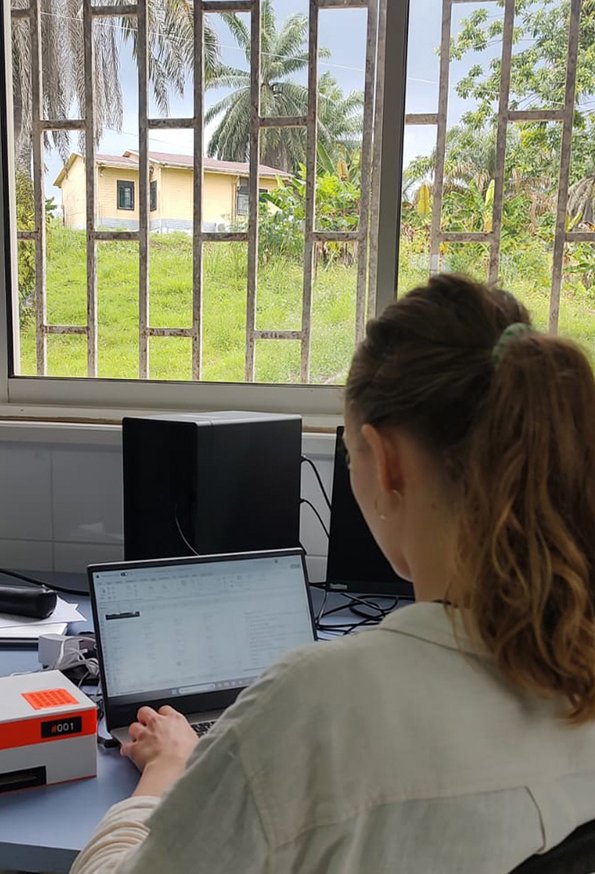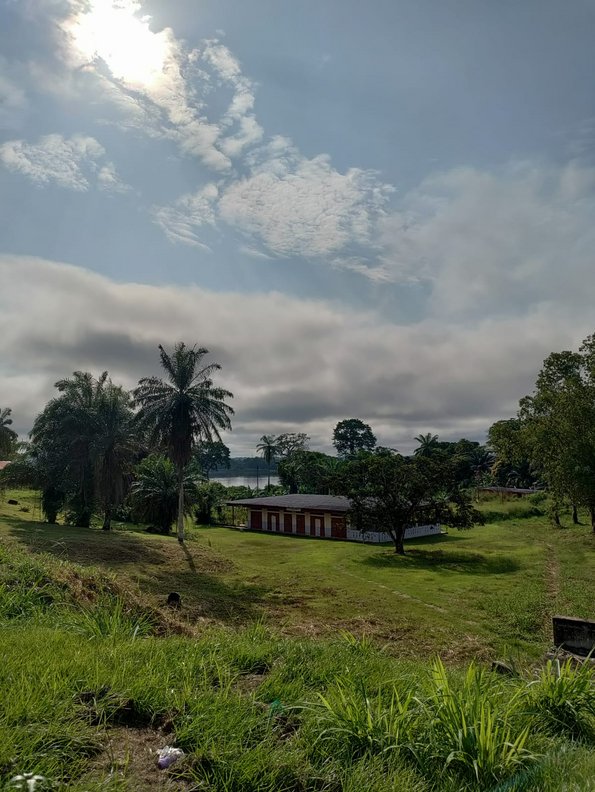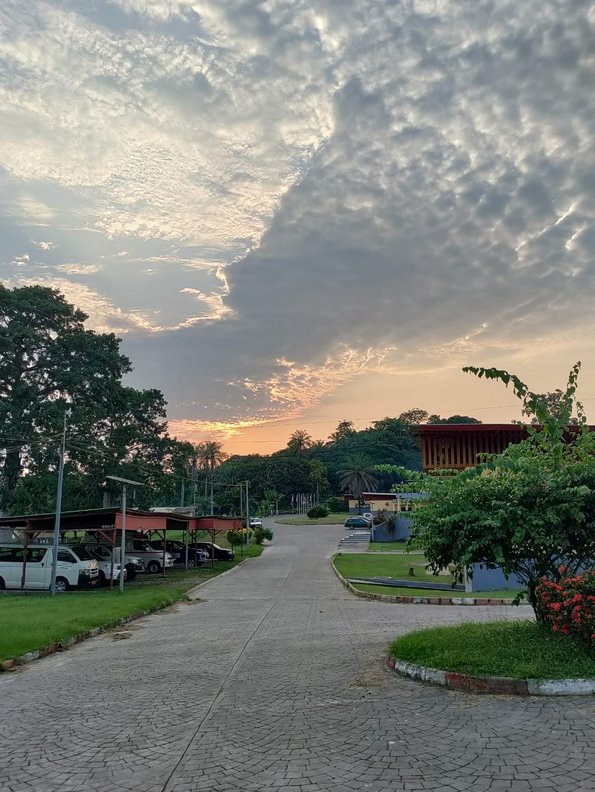Students test a new method in Africa for diagnosing malaria
Trine Juul-Kristensen and Celine Thiesen, Master's students at the Department of Molecular Biology and Genetics (MBG) at Aarhus University, are testing a new method based on saliva samples for diagnosing malaria at the Centre de Recherches Médicales de Lambaréné in Gabon in Africa as an integral part of their studies.

Developed as a result of many years of basic research at MBG, the method offers the novel ability to measure the presence of the malaria parasite in saliva. This offers a number of advantages over existing methods based on blood samples, which can often be difficult to access in epidemic areas such as Africa.
Trine Juul-Kristensen and Celine Thiesen travelled to Gabon, an area with a high incidence of malaria, to carry out the first trials of the method in a test laboratory. Local doctors take saliva samples and the testing is carried out in collaboration with local researchers, led by Chief Physician and Professor Ghyslain Mombo-Ngoma and VPCIR Biosciences, a spin-out company from Aarhus University.
People with malaria symptoms visit the clinic in Lambaréné for a diagnosis. In addition to the traditional blood test used for standard diagnosis, they are also asked if they would be willing to provide a saliva sample for the research project, which most of them are happy to do.
Associate Professor Birgitta Knudsen (MBG), who is leading the project, says:
"We have achieved very promising results in this pilot test. This is not least due to the enormous efforts of the two students, not only in the preparations at home, but also in their unique ability to solve unforeseen problems that arise when testing new technology in remote areas," she continues. "For example, Trine and Celine were quick to find a solution when it turned out that the test lab did not have a heating incubator. They easily solved that problem with a simple styrofoam box with heated water placed in the African sun," concludes Birgitta Knudsen.
Trine Juul-Kristensen:
"Our field testing has given us a unique insight into the hospital and research world in Gabon. Different research conditions and unpredictable events have led to new creativity in experimental set-up and require a high degree of adaptability because you never know when the power will come back on. It's a different way of working that can sometimes be frustrating, but also provides some fun challenges."
*Celine Thiesen:
"Gabon is an incredibly beautiful and lush country with a welcoming and helpful population, but also a country with a lot of challenges. We have been particularly surprised by the locals' thoughts on disease, including malaria. They believe that it is very much a disease you live side by side with and accept that it cannot be avoided."
Subsequently, the plan is to transfer the method to the laboratory in Gabon so that local researchers can perform further tests. The Danish and African researchers will work together to fine-tune the final technical details before finalising the test method in collaboration with VPCIR Biosciences.
About the collaboration with Gabon
The Danish researchers are collaborating with the CERMEL research centre located at the renowned malaria hospital Hospital Albert Schweitzer in Lambaréné.
They have known Chief Physician and Professor Ghyslain Mombo-Ngoma for the past 10 years and have also had successful collaborations with him in the past, leading to joint scientific articles. The Danes came into contact with Ghyslain Mombo-Ngoma through a German doctor and researcher with whom they had worked together years ago.
Gabon is located in western Central Africa. The country has a coastline on the Gulf of Guinea, lies on the Equator and borders Equatorial Guinea to the north-west, Cameroon to the north and Congo to the east and south.
- *Celine Thiesen has just started as a PhD student at HEALTH, where she will be working on a completely different project.
For further information, please contact
Associate Professor Birgitta Knudsen
Department of Molecular Biology and Genetics
Aarhus University, Denmark
brk@mbg.au.dk - mobile: +45 6020 2673





